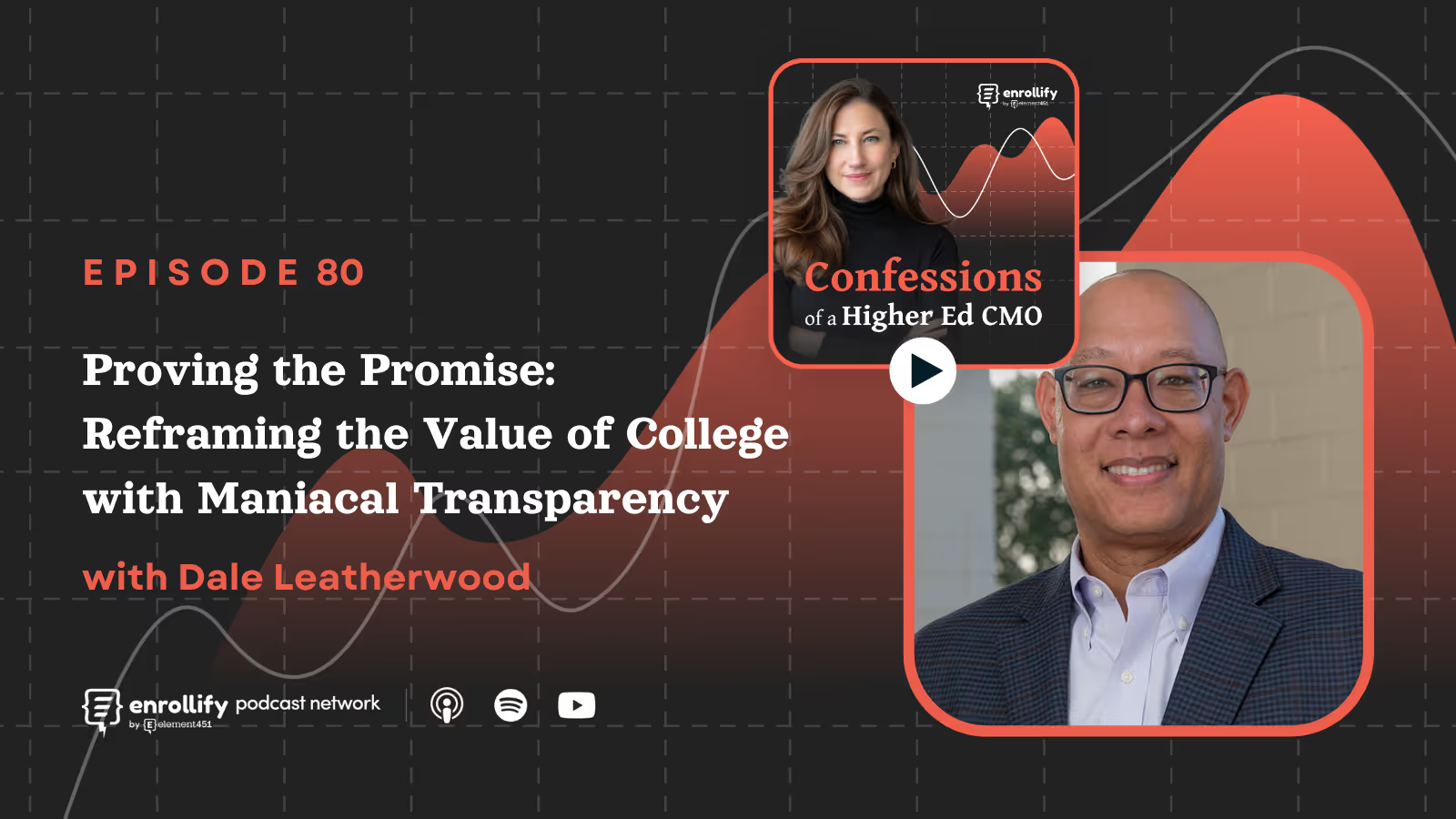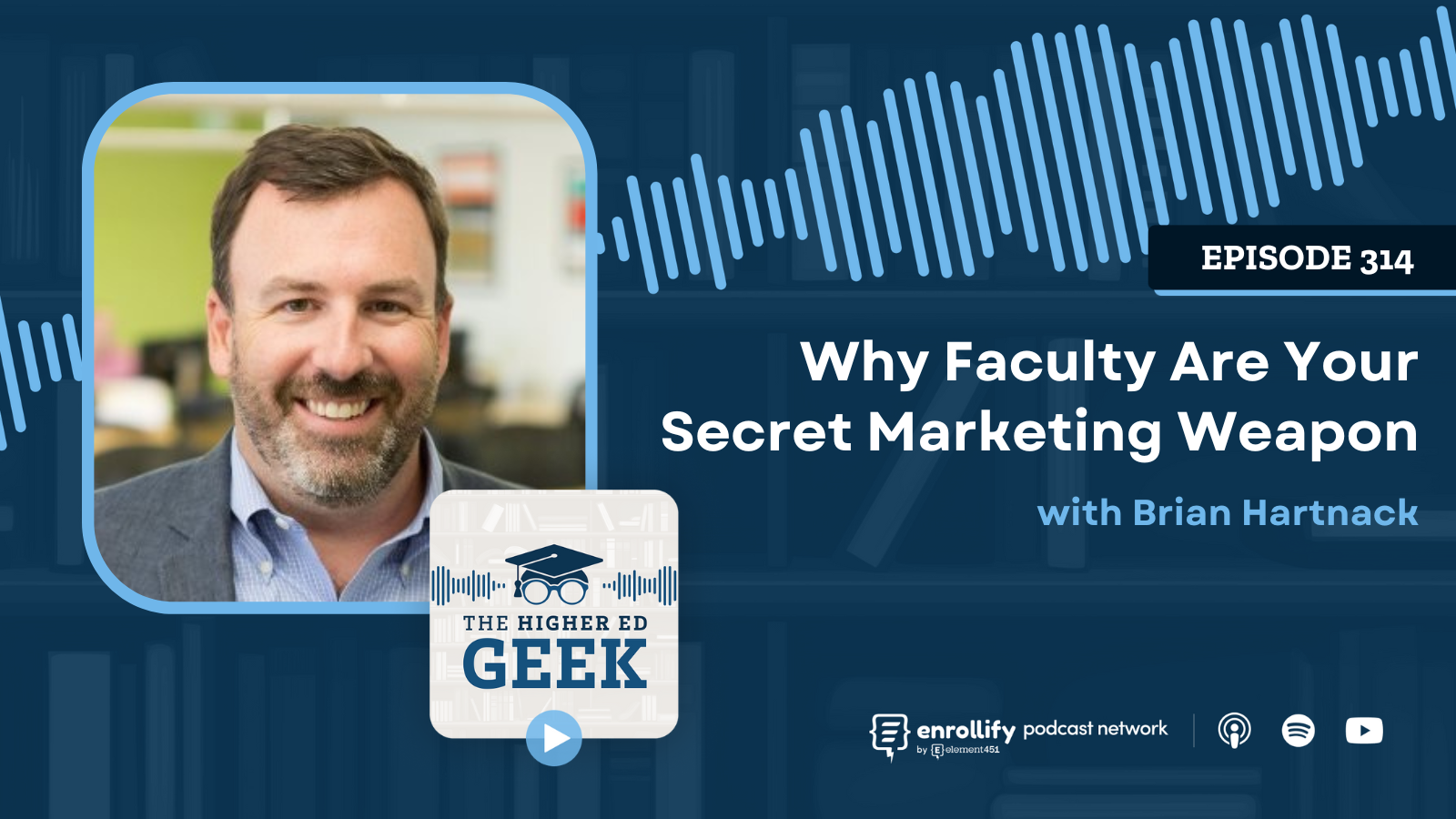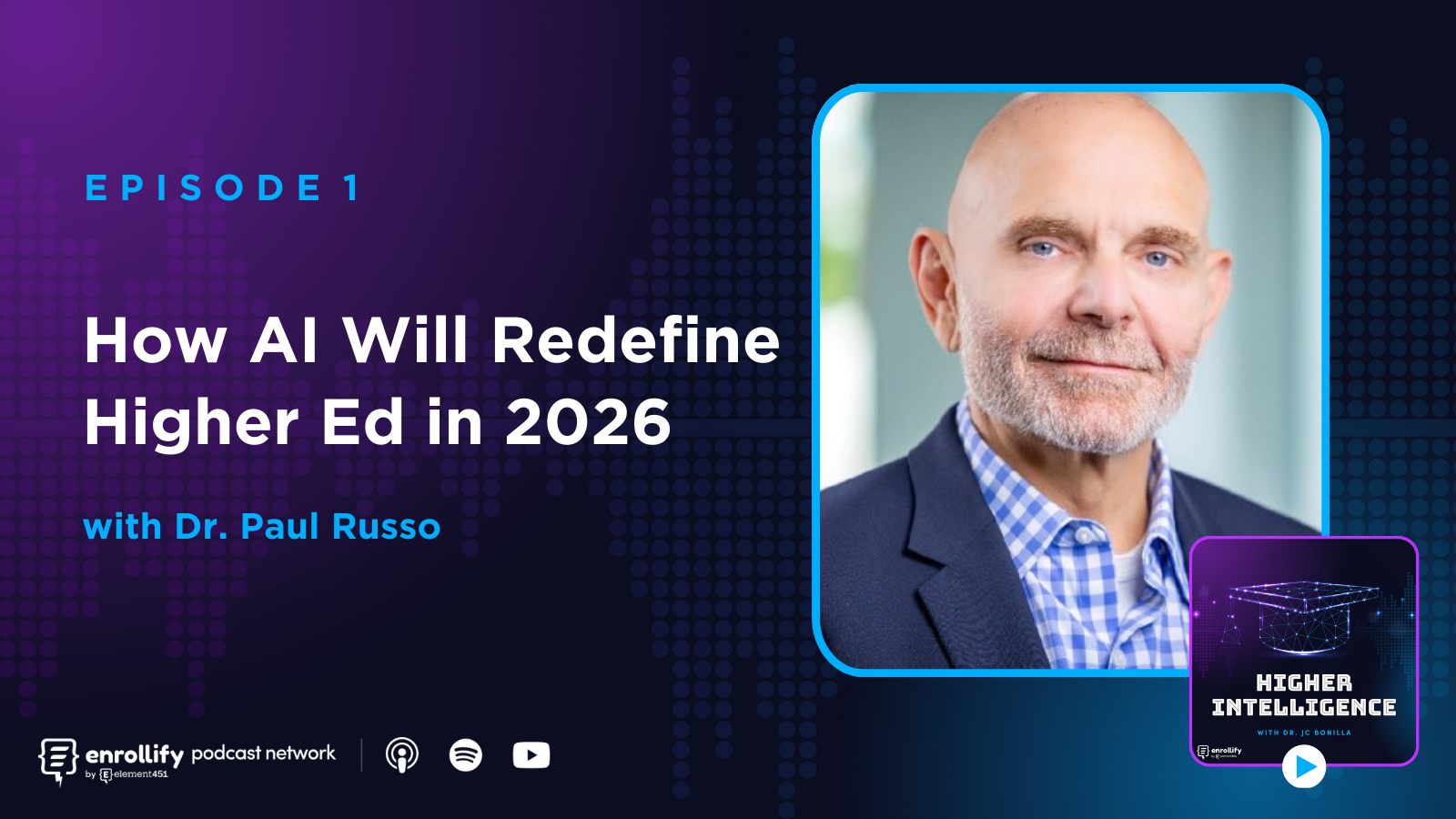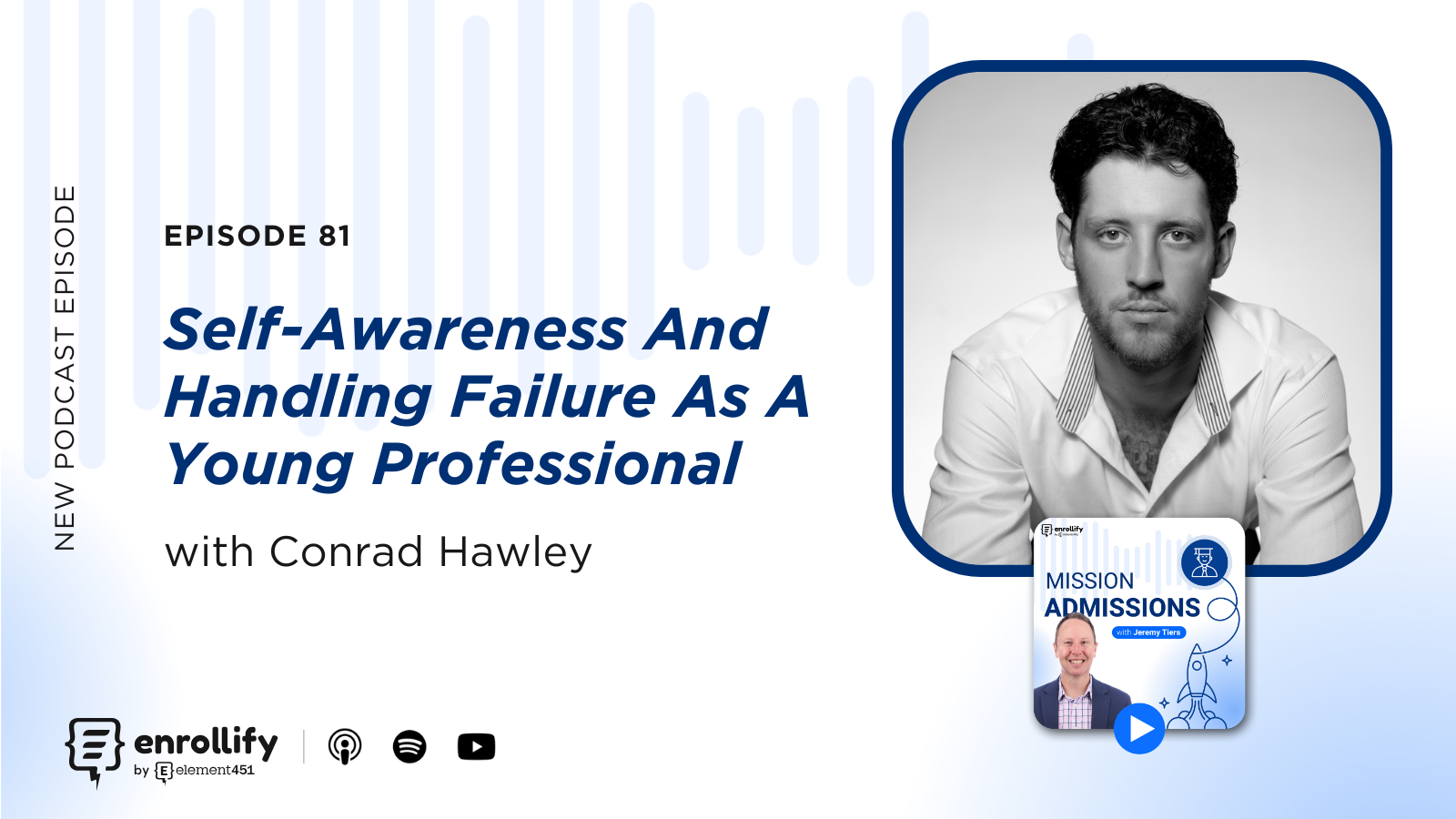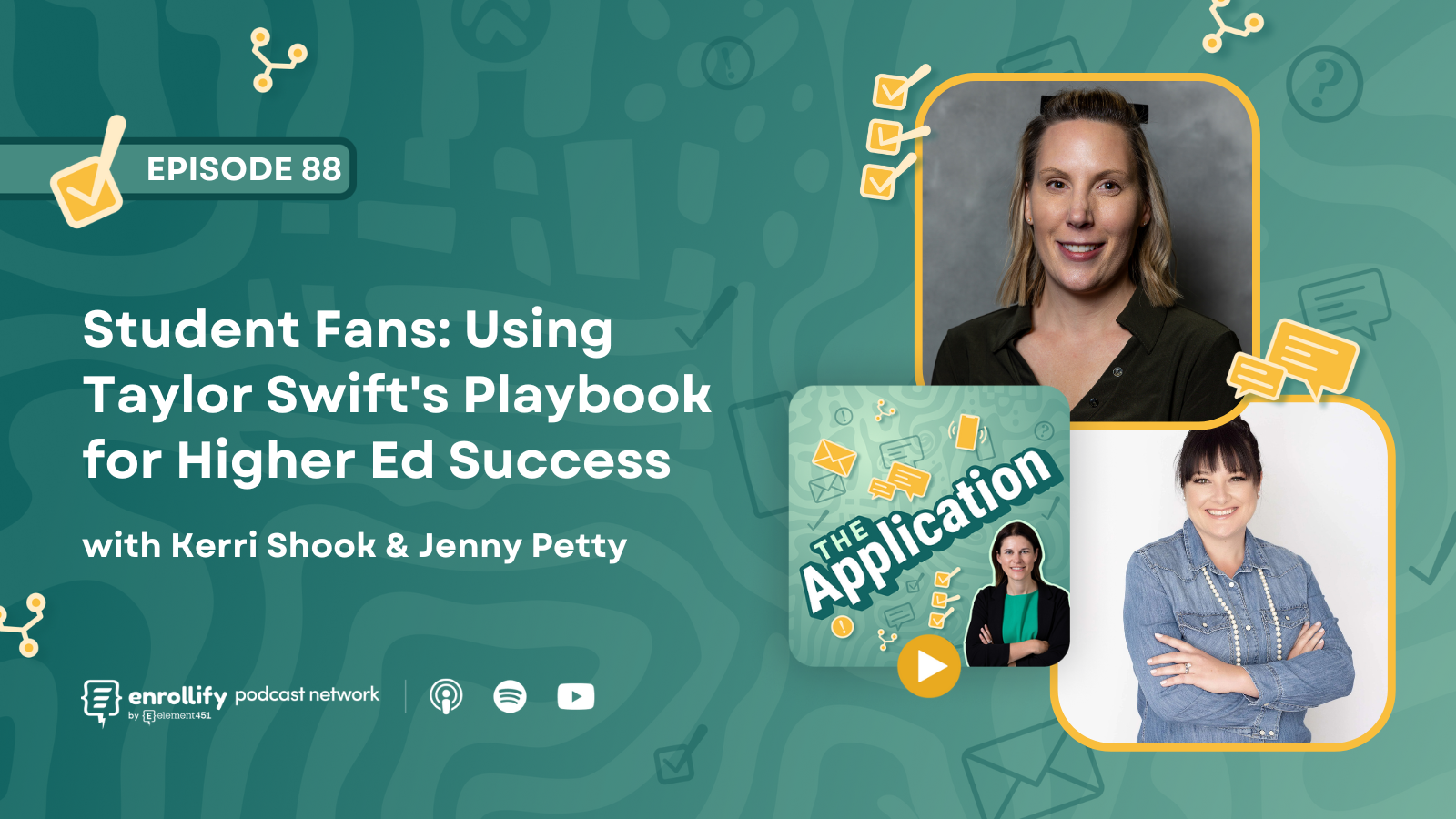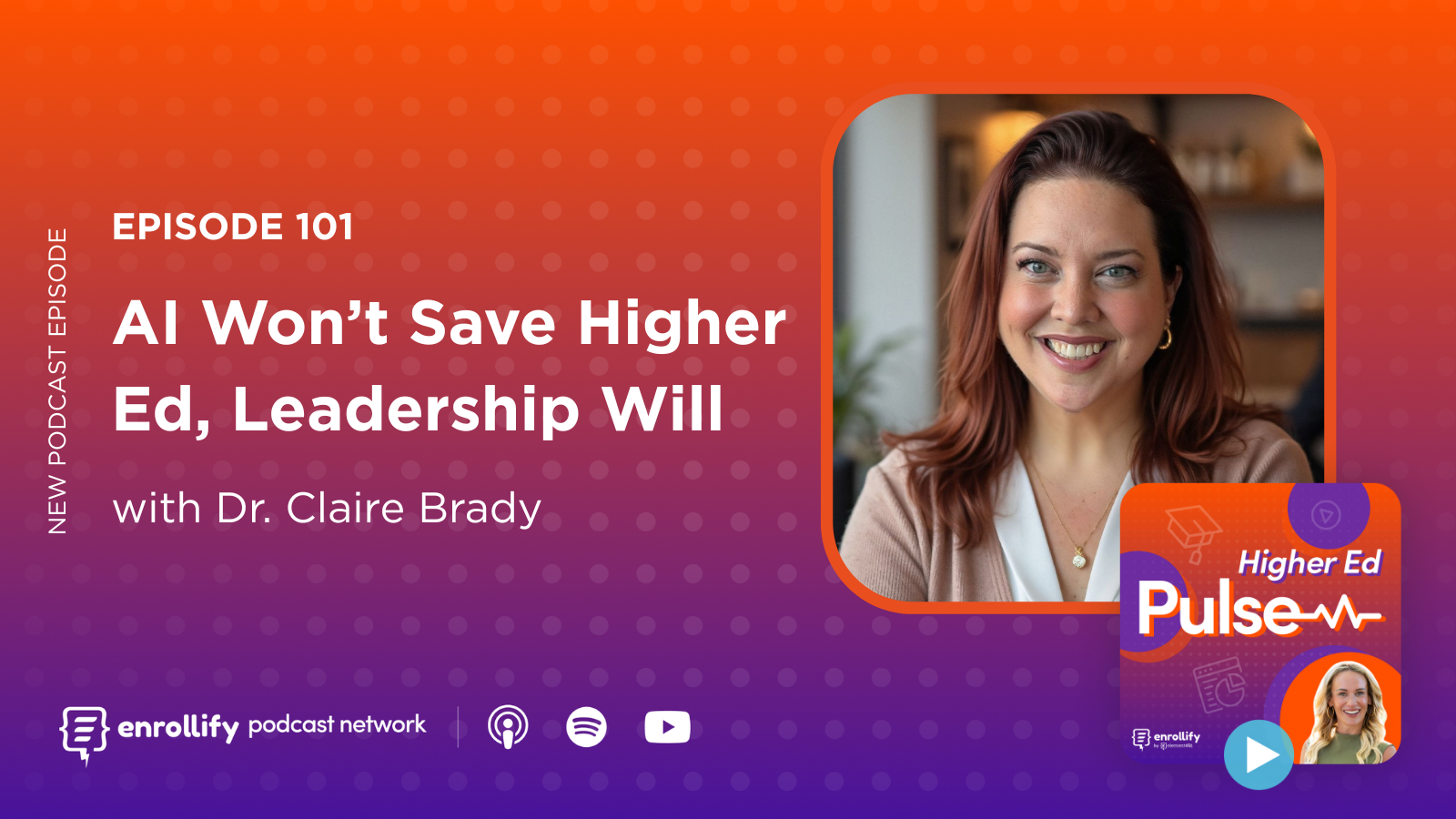About the Episode
Got a story to tell? An innovative idea to share? Fill out our guest nomination form and let's chat!
About the Episode:
Jaime Hunt welcomes Dale Leatherwood, Chief Marketing Officer at Columbia Southern University, to explore one of the most pressing issues in higher ed today: the public’s shifting perception of the value of a college degree. Together, they dig into the real drivers behind skepticism—not the return, but the investment—and unpack how institutions can better align academic offerings, improve cost transparency, and reclaim the narrative around higher ed's true impact.
Key Takeaways
- ROI of higher education isn't the problem—most students still believe in the return; it's the investment (cost) side that raises concerns.
- Cost transparency in higher education is lacking and contributes to skepticism; institutions must clearly communicate true costs.
- Adult learners demand clear pathways from education to employment, especially when balancing family, work, and tuition bills.
- Institutions must leverage storytelling to connect degrees with real-world impact, community improvement, and innovation.
- AI and liberal arts are not mutually exclusive—combining critical thinking with technology use prepares students for future jobs.
- Higher ed needs to lead the conversation on AI and collaborate across institutions to stay relevant and resilient.
- Universities must market themselves like other industries—with radical clarity, value alignment, and mission-driven messaging.
Episode Summary
What’s really driving skepticism about higher education?
Dale Leatherwood challenges the media narrative that students are losing faith in higher education altogether. Referencing a Gallup and Lumina Foundation survey, he points out that nearly 91% of current bachelor’s students and 64% of those who’ve stopped out still believe a degree is worth the effort. The skepticism isn’t about the ROI of higher education—it's about the “I.” Students and families worry about the upfront investment, not the long-term return. The rising cost of college and a lack of transparent pricing make the decision feel more risky than rewarding.
Why is cost transparency such a sticking point?
Dale likens the college pricing model to healthcare billing—confusing, unpredictable, and opaque. Sticker prices rarely reflect what students will actually pay, and institutions often bury the real numbers behind layers of web navigation. Some schools fear scaring students off with high price tags, but the truth is, today’s savvy learners will find the real cost anyway—using AI, search engines, or crowdsourced platforms. The solution? Cost transparency in higher education needs to be “maniacal.” That means itemizing fees, clarifying aid types, and making price comparison easy and intuitive.
How can institutions better align with workforce needs without losing liberal arts?
The either/or framing of workforce readiness versus liberal arts is a false choice. Dale argues that the most impactful education blends technical skills with critical thinking. A degree in public administration, for example, should not only teach budgeting but also communication, ethics, and systems thinking. Employers want team members who can think, pivot, and solve problems. That means colleges must not only offer those experiences—they must market them clearly, showing how soft skills like creativity and critical analysis are vital in an AI-driven future.
What role should AI play in higher ed?
AI is a powerful partner, not a replacement. Dale and Jaime discuss how institutions must teach students to think first, then use AI to amplify their capabilities. Prompting tools like ChatGPT won’t deliver value unless the user brings domain expertise to the table. The challenge for higher ed is to prepare students not just to use AI, but to use it wisely—learning when to lean on it, when to override it, and how to collaborate with it for better outcomes. As Dale puts it, college is about overcoming obstacles, not bypassing them. AI should support that growth, not short-circuit it.
How can institutions shift public perception and restore confidence in the college degree?
Dale lays out a clear directive: colleges must better tell the story of how education improves lives, communities, and entire industries. Instead of focusing only on elite institutions, the higher ed sector should spotlight the 90% of colleges doing incredible, unsung work. He encourages leaders to connect the dots between degrees and the everyday innovations, businesses, and jobs that surround us. It’s not just about defending the value of college—it’s about proving it, with real examples that make the benefits feel tangible, relatable, and urgent.
Connect With Our Host:
Jaime Hunt
https://twitter.com/JaimeHuntIMC
About The Enrollify Podcast Network:
Confessions of a Higher Ed CMO is a part of the Enrollify Podcast Network. If you like this podcast, chances are you’ll like other Enrollify shows too!
Some of our favorites include Talking Tactics and Higher Ed Pulse.
Enrollify is produced by Element451 — the next-generation AI student engagement platform helping institutions create meaningful and personalized interactions with students. Learn more at element451.com.
Attend the 2025 Engage Summit!
The Engage Summit is the premier conference for forward-thinking leaders and practitioners dedicated to exploring the transformative power of AI in education.
Explore the strategies and tools to step into the next generation of student engagement, supercharged by AI. You'll leave ready to deliver the most personalized digital engagement experience every step of the way.
👉🏻 Register now to secure your spot in Charlotte, NC, on June 24-25, 2025!







